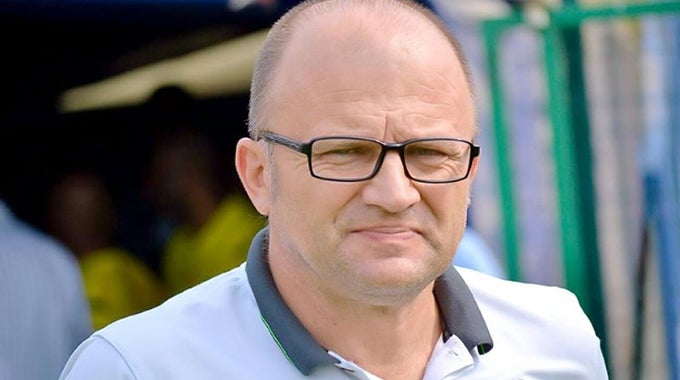Wife, husband team up to serve their community with health services and information

In Chipinge and across Zimbabwe, village health workers are the frontline, serving hundreds of thousands of people disseminating basic health services and information. Their dedication is rubbing off, and many family members are also learning from them and spreading the message about COVID-19 and other health issues to others in their communities.
In their tiny living room in rural Chipinge, Village Health Worker Prisca Gwenzi (50) unlocked a metal box and took stock of the medicines within. Her husband, Caiphas Mtisi sat on an old sofa, holding a pen in one hand and scrolling an exercise book with a register of beneficiary details.
“She is the expert, I am the assistant,” said the 54-year old, grinning.
Outside, some women sat on the verandah as the rains pounded, waiting to be tested for malaria.
Gwenzi has been a VHW for the past 10 years after receiving training at Mt Selinda Mission Hospital. Her commitment to serving the community has influenced her husband who has turned into a strong advocate for children and women’s health issues and rights.
Apart from helping his wife with domestic chores when she is busy with people in need of health services, he also moves around the community promoting health among his male peers who are often reluctant to take health issues seriously.
The wife-husband team is an example of how skills imparted to VHWs are having positive downstream effects in rural communities where health promotion is constantly vital for populations that are vulnerable to diseases but lack quick access to health facilities or information.
Many village health workers here have indirectly recruited their husbands, children or extended family members into their quest and drive for a healthier community – expanding the network of information dissemination agents. In Mtisi’s case, he is always at hand to ease the workload for his wife, Gwenzi.
“There are times when people come here in their numbers with their babies. I will be there to welcome them, telling people to wash their hands at the entrance and ensuring that they maintain social distancing and they keep their masks on. I cannot do her actual job because she is the trained one, I am just a layman helping out,” said Mtisi, adding that he was very pleased and supported Gwenzi when she was to attend VHW COVID-19 training.
“She can go for days and I don’t mind being alone, I know she will be getting valuable training that the community and I will benefit from. I accepted my role as her helper the day she was chosen to do this job,” he said.
In the packed room, solar batteries, lights and a panel competed for space with health informational charts, books, boxes of masks and sanitizer and a small television.
The solar items are used to light a down pole and metal sheets shade outside when pregnant women with labour pains knock in the dead of the night and have to wait for an ambulance or receive urgent attention at the couple’s home.
“I don’t know how I would manage without him. He is my pillar of support,” said his wife, Gwenzi.
Gwenzi is one of dozens of VHWs providing critical first-line help to villagers in the area. They are supported with resources such as allowances and bicycles as part of the Zimbabwe Idai Recovery Project (ZIRP) implemented by UNICEF and funded by the World Bank.
UNICEF is working in 9 districts affected by the 2019 Cyclone Idai in critical areas of reconstruction including health, education and WASH sectors. In the health interventions, the focus has been on accelerating the revitalization of basic health service provision to enhance increased access to health services and strengthening community-based primary health care systems to deliver primary health care services.
These include referral system in cyclone-affected districts through ensuring the provision of essential medical supplies, equipment and other health commodities including for VHWs, as well as strengthening community engagement and participation in the health system.– Unicef Zimbabwe










Comments